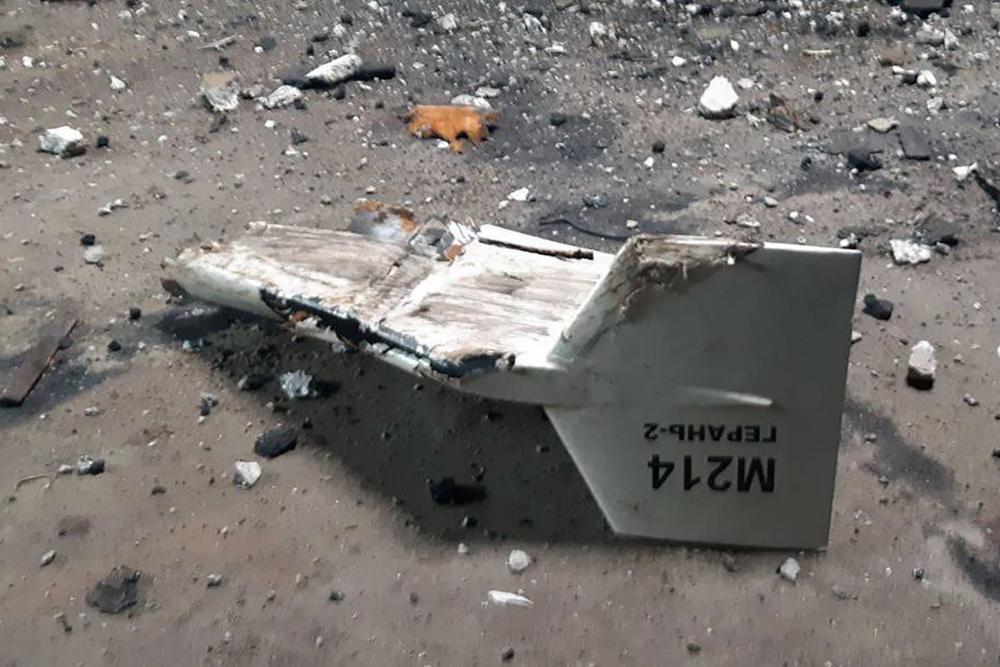
Iran has admitted for the first time that it sent drones to Russia but insisted they were supplied to its ally before Moscow’s invasion of Ukraine.
Kiev and its Western allies have accused Russia of using Iranian-made drones in recent weeks to carry out attacks.
Tehran has repeatedly denied the claims but on Saturday foreign minister Hossein Amir-Abdollahian was quoted as saying that drones had been sent to Russia before the invasion began in late February.
"We supplied Russia with a limited number of drones months before the war in Ukraine," Amir-Abdollahian said, according to Iran’s official news agency IRNA.
But he again denied Iran had supplied missiles to Russia, calling the accusations "completely false".
For weeks, Russian forces have rained missiles and explosive drones onto Ukraine’s infrastructure, as a major Ukrainian ground offensive -- propelled by Western arms deliveries -- has pushed Russian troops back in swathes of the country.
Kiev claims around 400 Iranian drones have already been used against the civilian population of Ukraine and that Moscow has ordered around 2,000.
President Volodymyr Zelensky on Saturday accused Iranian officials of lying about its drone deliveries to Moscow.
"They decided to admit that they did supply drones for Russian terror. But even in this confession they lie," he said.
"We shoot down at least 10 Iranian drones every day, and the Iranian regime claims that it allegedly gave little and even before the start of a full-scale invasion."
Earlier Ukraine’s foreign ministry spokesman had warned Iran that "the consequences of complicity" with Moscow would be "greater than the benefit from Russia’s support."
Britain and the European Union have imposed sanctions on three Iranian generals and an arms firm accused of supplying Russia with drones.
Russian strikes over the past month have destroyed around a third of Ukraine’s power stations and the government has urged Ukrainians to conserve electricity as much as possible.
Ukraine’s state energy company on Saturday announced additional power rationing in Kiev and several other regions of the country.
Ukrainian and Russian forces appear to be gearing up for a fierce battle in Kherson, a southern city with a population of around 288,000 people before the conflict.
It was the first major Ukrainian city to fall to Russian forces following Moscow’s invasion.
Russia has been pulling civilians out of the Kherson region, with President Vladimir Putin saying residents must be "removed" from danger zones.
But Kiev has likened the departures to Soviet-style "deportations".
Meanwhile, soldiers in northern Ukraine are watching out for a fresh attack along the border with Russia and Belarus.
Guards have been scanning the horizon at a remote outpost near the Senkivka border crossing, where Russia’s 90th armoured division swept in when the war started, cutting through Ukrainian territory.
Inside the well-fortified dugout set up after the Russian pullback in April, a guard in his 30s nicknamed "Lynx" spoke to AFP.
"Since autumn began, the enemy has become more active," he said, a machine gun slung over his shoulder.
"Everything is more serious now... we have thought through all the possible options to avoid a repeat of what happened before."
In the southern Ukrainian city of Melitopol, Moscow’s occupying authorities said Saturday they had brought back a statue of Lenin, seven years after it was taken down following Kiev’s pro-EU revolution.
The Moscow-installed head of the Zaporizhzhia region, Vladimir Rogov, posted a photograph of workers in the city reinstating the tribute to the Bolshevik leader.
Almost all cities in Russia have a statue of the founder of the Soviet Union in their central squares.
But Ukraine dismantled Lenin statues across the country after its 2014 revolution overthrew a Moscow-backed regime, as part of its "de-communisation drive."
It was seen as an effort to break away from Russian and Soviet influence.
Meanwhile tens of thousands of people marched through Italy’s capital on Saturday calling for peace in Ukraine -- and urging the government to stop sending weapons to fight Russia’s invasion.
"No to war. No to sending weapons", read one banner carried by protesters in Rome, as a vast crowd broke into cries of "give peace a chance".
Some politicians, including former prime minister Giuseppe Conte, have said Italy should be stepping up negotiations.
But new far-right Prime Minister Giorgia Meloni has vowed to keep supporting Ukraine and the government has said it expects to send more weapons soon.